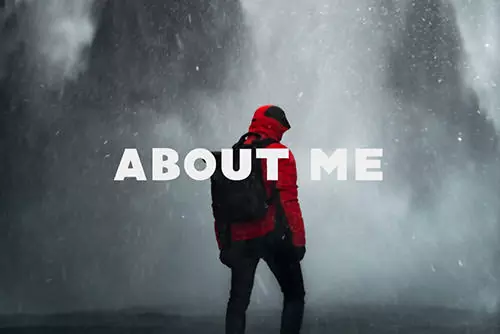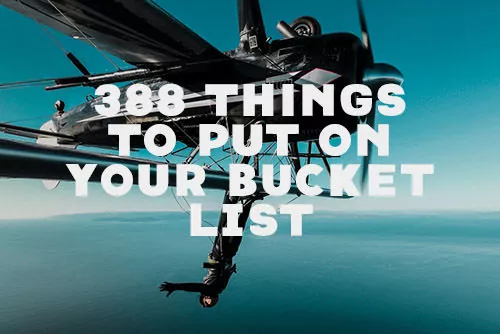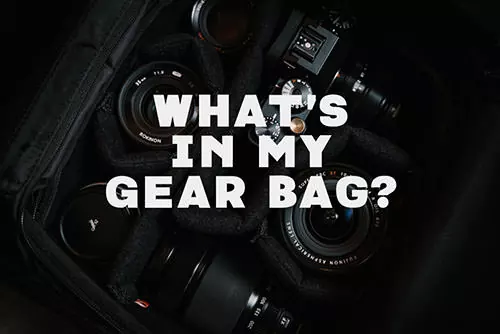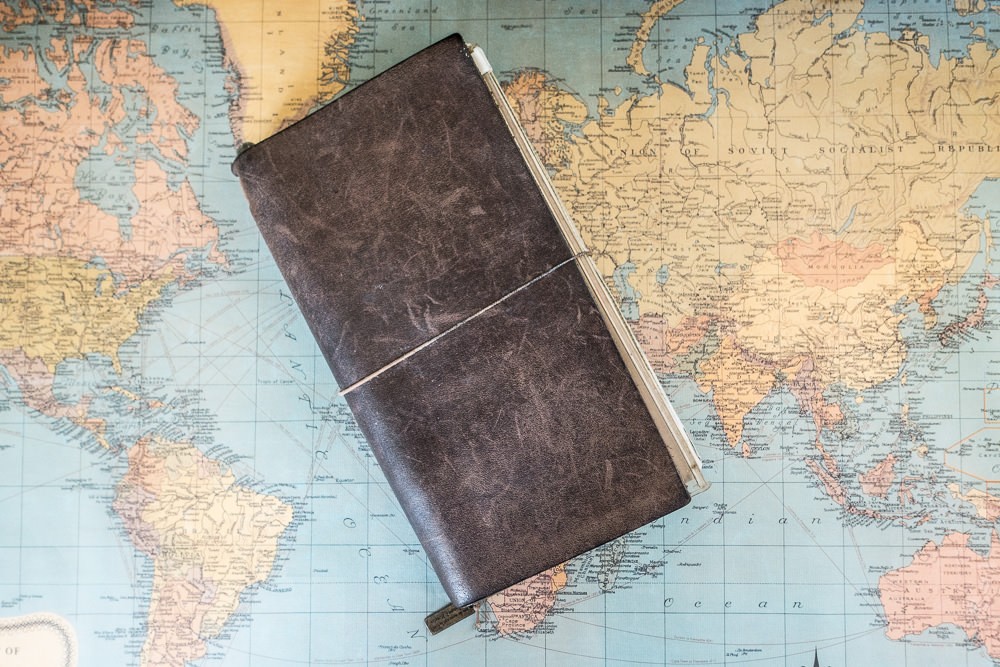9 Common Travel Scams To Avoid When Traveling In Europe and Asia
9 Common Travel Scams To Avoid When Traveling In Europe and Asia
There are scams almost everywhere there are hordes of tourists. Your chances of encountering it comes down to just where you are and how many other tourists are around. Maybe you stand out or maybe you’re just in the wrong place at the wrong time. If you’ve fallen for the friendship bracelet scam or a money exchange scam, I would just take a deep breath, let the hate go over a beer, and take it as a learning experience.
The thing that separates a scam from an outright theft is that you’re often complicit in it – whether you wanted to be or not. That whole “there’s no such thing as a free lunch” is a good cliche to remember when you’re traveling. No one is suddenly going to pop out and do something nice for you out of the blue. You can try to go to the police, but there’s very little chance that they’re going to do much knowing that you’re going to leave town in a couple of days.
Below are a few of the most common scams you’ll encounter in two tourist hot spot zones: Europe and Asia. These two regions get a similar mix of both backpackers and holiday tourists, so it makes sense that the same scams exist in both places.

How To Avoid The Friendship Bracelet Scam
That group of guys waiting to tie a friendship bracelet around you wrist near the Eiffel Tower or the gypsy woman trying to give you a charm near the Charles Bridge in Prague are both scammers, if you didn’t know that already. If you don’t let them “give” you their “gifts”, they can’t ask for anything in return.
If you “accept” their gift, reluctantly or not, they will demand money and cause a big scene when you refuse to pay. You might think $5-$20 is worth it, to just put it all behind you, and pay up. And that’s exactly what they want. These “gifts” are usually things that you can easily return to them, like a friendship bracelet that is tied tight around your wrist, or string of flowers that will break when you handle it.
It’s necessary to be assertive with a fast and definitive “No” while walking on. If they follow, stop and firmly say “No” one more time before walking away. Never let them touch you. Most will give up at this point because there are always easier target. Don’t be one of them.
If they somehow got you, or someone you know, just put up an equal amount of fuss and tell the you will call the police. This is nothing new for them, and they will give up.
How To Avoid The Fake “Buddhist” Monks Scam
In Asia and, more unexpectedly, Europe, you might also see “Buddhist” monks walking around offering you a charm as a gift. In Europe, you can almost certainly spot this as a scam, since it looks so out of place. In Asia, you are more likely to think that these are monks going around collecting charity. The ones aggressively walking down the street handing out gifts to everyone are not real monks. They’ve simply just shaved their heads and put on an orange and red robe for the look. Monks will not approach you giving out charms.
The harder ones to spot are at Temple complexes. You might find monks who will offer, silently, instructions on how to pray. They might even “provide” the incense for you and just nod and smile. You might take this as kindness and generosity. DON’T. It’s just a psychological technique designed to make you feel at ease. It also “guilts” you into not being so guarded or negative in such a holy place.
Bullsh*t. Monks don’t have time sitting around waiting to help tourists light an incense. You will mostly find these scams just outside the main temple areas, since they are usually banned from conducting these scams in the temple complex itself.
Don’t Be Tempted By The Cheap Exchange Rate Scam
The money exchange scam is another one where some guy on the street is willing to give you a much better exchange rate than the “rip off rate” that those money exchange booths give. These guys will start counting out the money and just before the exchange is made, something sketchy happens, like a random drunk or homeless dude interrupting. In the confusion, he will quickly hand you the roll of cash that he “counted” out so you can both get away from the drunk, aggressive dude. Except, as soon as you get away to a “safe” distance, you’ll realize that inside the roll of cash is a roll of much less valuable currency. This has happened a few times to younger travelers I’ve met.
If this happens to you, it’s your fault for thinking you can get around the whole exchange rate/commission. Easy enough to say, but don’t put yourself in these situations. In this case, know your exchange rates, exchange your money when you are somewhere reputable and don’t try to get cash at 12 am in the middle of a tourist hotspot.
Money-Exchange Tip #1: I always have a currency converter app on my phone that gives me the daily bank rate. Getting money from ATMs will usually give something in the acceptable range of bank rates from your bank as long as you DON’T accept the ATM’s conversion. That will almost always cost you an extra 5% at a minimum.
Money-Exchange Tip #2: Avoid EuroNet ATMs. Unfortunately, they are everywhere and are designed to get you to accept their high-commission conversion because you think it’s required. If you manage to avoid this, you are still getting a pretty bad rate or a high commission fee sometimes totally between 10-25% of the amount you are pulling out. They also have low limits, so that you will be paying a fixed rate around $5-$10 USD when you can only pull out $50-$150, depending on the country and location.
Money-Exchange Tip #3: Do the math yourself. Some places offer 0% commission, but a lower rate while another might offer a fixed commission with a better rate. If you are converting a lot, look for the better rate and see if the difference is higher than the fixed commission rate. These are still a business after all, so they have to make some money.
Don’t Let Anyone Clean A Spill Off You
In crowded places, someone might bump into you and spill their drinks or alert you to some substance that has dropped on you, like bird poop. They will quickly “offer” to help without actually offering. In the split second for you to react, they are always trying to get close and clean the spill for you. In the melee of you trying to decline politely while they initially ignore you, someone else outside of your field of distraction will have gone for your wallet or purse.
I’ve actually seen this happen in multiple European cities, but never been able to spot who made away with the wallet.
Multiple people are often involved and they scatter so fast, you can’t do much.
In my experience, anytime I feel a touch on me, I instinctively go for my wallet first and check that everything is secured on me. That’s faster than most of their diversion operation. There’s the chance that the first bump is a feint to have me go for my wallet and reveal where it is. I’m ok with this, because I usually secure the wallet immediately. If this is their plan, they will see me doing it, and move on to an easier target.
I choose my gear accordingly to be more secured. For all my camera gear, I use a discreet backpack with hidden pockets secured on the inside to keep my passport and money safe. I also keep a very slim low profile money belt tucked inside my pants while in transit. I don’t need to use this all the time, but in transit, I have everything on me, so I keep most of my cash and a separate set of credit cards in the money belt, just in case. Lastly, I always carry around a few of these locks that get used almost all the times at hostels, hotels, and while I’m on a bus or train.
Don’t Listen To The Fake Police Officers
There’s one common reason most travelers will encounter a police officer or an officer of some kind. They haven’t paid for the local transportation. If you didn’t buy a ticket for the tram, that’s on you. The officer might be legit or it could be someone who doesn’t work for the government. In either case, you are in the wrong, and you will need to pay up. This has happened to me before when I went along with other backpackers who didn’t think they needed to pay on Christmas Day because none of the ticket booths were open. We got caught.
In this case, calmly listen to what they are asking you to pay. If they ask for your passport or ID, which they legitimately need, ask for their identification first as well. Tell them you will take a photo of it and of them, just in case. Proper officers, uniformed or not, should comply. If they don’t have it, insist that you go to the police station together. Follow through with this. If it’s legitimate, you will know soon enough. If not, they will eventually try to offer you a better rate to “let you go.” Don’t pay anything to these scammers.
Another precaution you can take, if you’re going to deliberately break this law, is to read about how much it will cost if you get caught. At least you will know if they are asking you to pay a legitimate fee or some made up one.
In any other case, if a “police officer” just comes up to you for no reason and ask for your passport or ID, DO NOT GIVE IT TO THEM. If you’ve done nothing wrong, tell them it is at your hotel and you are happy to walk with them to go get it. They will give up when you start walking to the hotel.
Ignore The “It’s Closed” Scam
I find that I hear about my hotel being closed or moved more often in Asia than Europe, but this is a simple one to navigate. At the bus station or airport heading into the city, the driver might ask where I’m staying or if I’m booked a hotel. When I give them a name, they’ll tell me it’s closed.
How lucky of me to run this this driver, who will save me the trouble of going to a hotel that no longer exists. Eye-roll. They might offer to take me to a different hotel that is open or better. Just politely decline and tell them you just talked to your hotel on the phone.
The same goes for rides to major attractions. They will tell you that the ticket booth is closed and know a different place to get tickets. Err on the side of caution and just ignore them. In a few instance, I’ve been wrong and the ticket office was indeed closed. It was not a problem, since I had thank the guy and politely declined earlier and just found a new way to get my ticket. They won’t get offended if I somehow “bump” into them again. If not, just ask around and figure out the situation.
Be Careful With All The Motorbike Scams
This happens more in Asia, but also on a lot of islands or smaller towns in Europe. If you’re going to rent any vehicle, but especially a motorcycle or scooter on the cheap from some “stall” on the street, make sure you take a lot of photos from every conceivable angle of the bike. Check the gas, make sure it runs, and everything else works. Seat cover latch. Lights. Horns. Hand Brakes. Foot Brakes. Don’t worry about being overly paranoid. If they are legitimate, they won’t mind. It’s in both of your interests that there’s no foreseeable problems with the rental.
When you return the vehicle, make sure everything is looked over and settled. It’s usually the happy-go-lucky renters that they go after knowing they probably didn’t take any photos of the prior damage to the vehicle.
Another common one that’s harder to avoid are the deliberately damaged vehicles that happen when you are holding onto a vehicle overnight. Sometimes, when they know where you are parking the bike, an acquaintance of the owner will deliberately damage the vehicle, like a slashed tire or seat. They will charge you higher than expected for the repairs.
The best you can do is park your vehicle in a secured spot. If you hotel has secured parking, you might have better luck with surveillance footage to add to the police report. You’ll certainly want to file one to ensure that everything with your insurance is sorted as legitimately as possible.
One last, but less common one, that has happened to me, is someone unplugging something or locking a part of my vehicle with a latch. For someone who knows their bikes, this won’t be a problem. A spark plug might be disconnected or a tire latch was locked. You can resolve this yourself, but otherwise you’ll struggle to get the bike started and suddenly a random stranger happens to come by and solves this problem for you. They’ll then ask for some money. What you may not realize is that they were the ones that caused the problem in the first place when you were away from your vehicle.
You didn’t ask for their help. They offered. So if you don’t want to pay, just smile, thank them and drive away calmly. Be assertive if they try to force you to pay. There are no obligations here and they know that.
In my case, as soon as he went under the bike and produced a ready wrench to tighten a bolt, I knew he was the one that loosened it deliberately.
Don’t Get Pulled Into The “Can I Practice My English With You?” Scam
I have another rule. It’s called “Why are you talking to me me?” Honestly, there’s hardly any good reason why anyone on the street should randomly come up to me to start a conversation, and definitely not in any major city. Even someone asking for direction? Really? Why me? Do I somehow look like I live here and know my way around?
I’m not saying put up 4 hard walls and never have conversations with strangers, but take 2 seconds to wonder why someone is suddenly talking to you? If you can’t come up with a good reason, just walk away. Be rude. Be aggressive if necessary. Scammers will be preying on you not wanting to be stern or rude. Just ignore. Worse case scenario, some hapless tourists was really asking you for directions, and you just ignored them or refused to help. Life goes on.
In any of the major Rajasthan cities of India (Udaipur, Jodhpur, and Jaipur especially), you might find a friendly English speaking Indian guy coming up asking to practice his English. 9.5/10 times that practice will come with a detour to his “art” school where he will guilt you into overpaying for art. Now this is only a borderline scam. He’s not actually stealing anything from you, but he is using emotional manipulation and fake stories to subversively try to sell you something. Hell, you might even be ok with it, because it was “really nice to speak with a local person”. To that, I’ll sit up a little straighter on my high horse and tell you, with pity, that you just had a fake conversation with a local.
Don’t Fall For The Attractive Women Scam
A similar scam happens in Europe as well, with attractive girls, usually from Eastern Europe who approach you saying that they overheard you speaking English so well, and want to practice with you. I mean, who’s ego doesn’t like a little stroking. From there, all sorts of opportunities open up for your wallet to be emptied (at least), or your life put in danger (to empty more than just the content in your wallet).
Think about it this way. Do you randomly walk up to tourists in your own city and start up conversations or invite them to your house for tea? If you do, then great for you. If not, just wonder why someone else is offering that type of “hospitality”.
One last thing on that subject though. I have experienced some real hospitality from locals on my travels, but it’s rare and felt very organic. There are also times when it’s sort of a quid pro quo type of situation. Someone genuinely is nice to you, but also wants you to buy something from them or help them out. At least they are honest about it. Most of the time though, it’s unfortunately an interaction that usually ends with them revealing their true motive.
Updated on September 14, 2020










